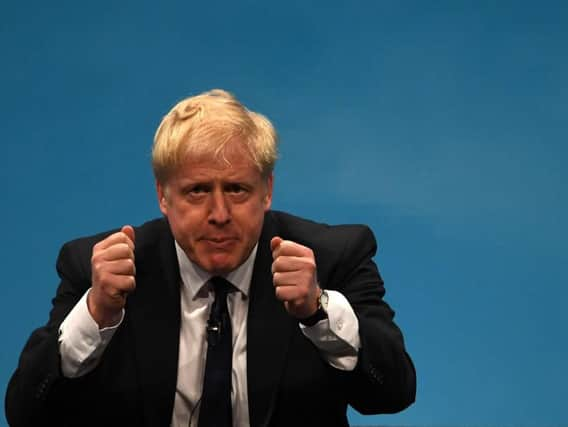Suspending parliament is not part of the normal democratic process


The prime minister’s supporters claim his critics are being hysterical - but the argument here goes beyond political point-scoring.
Of course it’s true that parliament is always prorogued before the opening of a new session of parliament with a Queen’s Speech - but it’s normally for just a few days.
Advertisement
Hide AdAdvertisement
Hide AdAnd yes, MPs were due to have a three-week recess over the conference season this month - but there were already plans to cancel that so MPs were on hand for Brexit developments.
Now the politicians will return to Westminster today and be packed off home again next week, only to return on October 14 for the ceremonial of the opening of parliament and several days debating Mr Johnson’s programme of legislation, leaving just the last week of October to deal with Brexit.
There is no doubt the move is designed to scupper cross-party efforts to pass legislation to prevent a no-deal Brexit. But this is more than making clever use of parliamentary procedures, it is stopping elected representatives from meeting to do their job.
Suspending parliaments is, as Ms Sturgeon suggests, what dictators do; it is not part of the normal democratic process.
Advertisement
Hide AdAdvertisement
Hide AdAnd as if that was not enough, Mr Johnson appears to be taking a cavalier attitude to other aspects of democratic government too. Aides suggest if he loses a vote of confidence he will refuse to resign and if he’s forced into a general election he will choose a date beyond Brexit on October 31.
Meanwhile, if parliament passes the proposed law to block no-deal, the government seems set to ignore it. “Let’s see what the legislation says,” said Michael Gove when asked about it.
The economic and social damage threatened by Brexit is worrying enough; it should not be destroying democracy as well.
Ruth Davidson was hoping Brexit would all be settled by the time she came back from maternity leave in May - but of course it wasn’t.
Advertisement
Hide AdAdvertisement
Hide AdAnd instead of being able to move onto other topics, she found herself still caught having to steer a tricky path between support for the UK Tory government and her own opposition to leaving the EU - a predicament made immeasurably worse when Boris Johnson became leader.
She convincingly explained her decision to step down last week after eight years as Scottish Conservative leader by saying the prospect of two elections in the next 20 months and having to spend so much time away from baby Finn filled her with dread. But perhaps if Brexit and Boris could somehow have been banished she would have carried on.
The Tories will struggle in Scotland without her. Few doubt it was her down-to-earth, plain-speaking approach and the fact she did not fit Tory stereotypes - as well as the clear message against a second independence referendum - that helped the Conservatives win enough seats to make them the second biggest party at Holyrood in 2016.
A new leader will obviously try to build on that success, but the Tories’ progress was so tied to Ms Davidson’s personal appeal it will now be a huge challenge to advance any further.